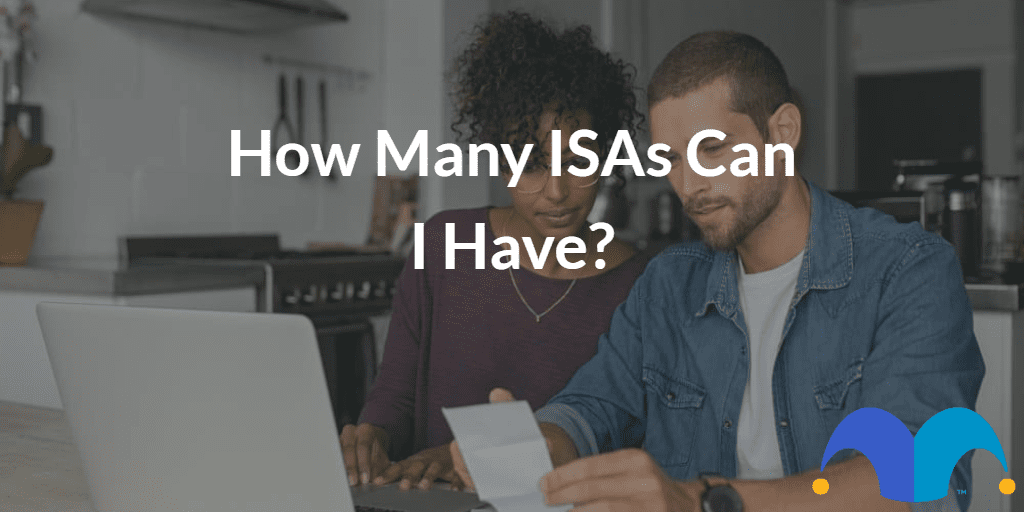An individual savings account (ISA) comes with some unique tax advantages for UK residents. And there are several different types of ISAs to choose from:
- Cash ISA
- Stocks and shares ISA
- Innovative finance ISA
- Lifetime ISA
So there are plenty of options, but how many ISA accounts can you actually have? Let’s break it down.
How many ISAs can you have?
You can have as many ISA accounts as you want, as long as you meet the eligibility requirements for each and stay within the £20,000 ISA allowance.
But you can only have up to four types of ISAs: your yearly allowance can be spread across a Cash, Innovative Finance, Lifetime, and Stocks and Shares ISA.
The number of actual accounts you can have may end up being a lot more than four, as each year you could open a new account from each category.
Each type of ISA can support a different financial goal. For example, if you were saving a downpayment for a home at the same time you were setting aside some money for long-term investments, you may want to open a Cash ISA and a Stocks and Shares ISA.
Example for the 2022/2023 Tax Year
- Paid £11,000 into a Stocks and Shares ISA
- Paid £3,000 into a Cash ISA
- Paid £2,000 into an Innovative Finance ISA
- Paid £4,000 into a Lifetime ISA
Can you have more than one ISA in a year?
You can pay into one of each type of ISA each year, as long as you meet the eligibility requirements for each and stay within the ISA allowance. So while you can have multiple of each type of account, you can’t pay into all of them in one year.
For example, you could open a Hargeaves Lansdown stocks and shares ISA this tax year, but you’d have to wait until next year before opening an account with Interactive Investor.
Good for long-term, cost-conscious investors who want lots of flexibility
Interactive Investor Stocks and Shares ISA *
| Trading Commission | From £3.99‡ |
| Account Management Fee | From £4.99† |
- Pros & Cons
- Fees & Charges
Pros
- Very cheap trading costs
- Flat-rate platform fee structure
- Inclusive free trades with some plans
Cons
- No dealing fee discount for frequent trading
- Some plans can be expensive for smaller portfolios
- Limited trading tools
Interactive Investor offers three different subscription plans – these are easy to switch between at a later date, should circumstances change.
Investor Essentials plan
Platform Fees:†
Monthly subscription fee: £4.99
Equities custody charge: covered by subscription fee
Fund management charge: covered by subscription fee
Note: the ‘Investor Essentials’ plan has a £50,000 investment limit; if this is exceeded the account will automatically be upgraded to the ‘Investor’ plan.
Dealing Fees‡:
UK shares & ETFs: £3.99
US shares: £3.99
Other international shares: £9.99
UK fund trades: £3.99
Investor plan
Platform Fees:†
Monthly subscription fee: £11.99
Equities custody charge: covered by subscription fee
Fund management charge: covered by subscription fee
Dealing Fees‡:
A monthly dealing credit, worth £3.99, is included as part of the account subscription and is valid for 31 days. (Equivalent to 1 free trade per month).
Additional trades are charged as follows:
UK shares & ETFs: £3.99
US shares: £3.99
Other international shares: £9.99
UK fund trades: £3.99
Super Investor plan
Platform Fees:†
Monthly subscription fee: £19.99
Equities custody charge: covered by subscription fee
Fund management charge: covered by subscription fee
Dealing Fees‡:
A monthly dealing credit, worth £7.98, is included as part of the account subscription and is valid for 31 days. (Equivalent to 2 free trades per month).
Additional trades are charged as follows:
UK shares & ETFs: £3.99
US shares: £3.99
Other international shares: £5.99
Fund trades: £3.99
Applicable to all plans
Regular investing service: free to use (£25 minimum investment amount, no dealing fees)
Spot + FX fees: 1.5%
Telephone dealing charge: £49
Note: For UK and US trades over £100,000, and other International share trades over £25,000 additional fees and charges apply. (See the Interactive Investor website for full details.)
Can you transfer an ISA?
Because of the rules around these accounts, you may find yourself with lots of them scattered all over the place.
The good news is, you can transfer your ISAs amongst different providers. This can make your accounts a lot easier to manage.
So if you already have an ISA, you are able to open one elsewhere and bring over your balance to the new provider. Just make sure you use the ISA transferring service. Don’t withdraw the balance and then try and put that in a new account.
What happens if I pay into more than one of the same type of ISA in a tax year?
If you accidentally paid into more than one of the same type of ISA, you should contact your ISA provider and HMRC as soon as you realize. Don’t attempt to fix it yourself. There is a process to sort out what happened, and it’s best to address it as soon as possible.
What is the best type of ISA to use?
The best type of ISA for you will really depend on your personal circumstances. There are various rules that apply to each type of account, so some may suit you better than others.
For example, you have to be under 40 to pay into a lifetime ISA. Also, the innovative finance and S&S ISAs are both for investing – but you get a lot more flexibility with a stocks and shares ISA account. If you decide to go that route, check out our top stocks and shares ISAs to decide which to choose.
But before you decide to lump money into one of these, have a think about your goals. Do you just want somewhere safe to store your cash or are you looking to get a better return on your savings?
Your strategy will then dictate how many ISAs it makes sense for you to have. There’s no point using them all just for the sake of it.
If you decide to go for higher returns, just remember that this may involve more risk. Taking on extra risk means that there is a higher possibility your funds may lose value. But this often leads to a better chance of superior rewards. So this is a decision you’ll have to weigh up for yourself.
Great for frequent investors or those who prefer funds
Hargreaves Lansdown Stocks and Shares ISA *
| Trading Commission | £5.95 – £11.95‡ |
| Account Management Fee | Up to 0.45%† |
- Pros & Cons
- Fees & Charges
Pros
- Plenty of investing resources and research material
- Cheap trading costs for active investors and free fund dealing
- Low platform fees for smaller portfolios
Cons
- Expensive fees for fewer trades
- Structure of fees can be complicated
- Limited trading tools
Monthly subscription fee: £0
Equities custody charge: 0.45% (capped at £45/year)
Fund management charge:
On the first £0 to £250,000 = 0.45%,
On the value between £250,000 to £1m = 0.25%,
On the value between £1m and £2m = 0.1%,
On the value over £2m = free
UK shares & ETFs: £11.95 (for 0-9 trades in previous month), £8.95 (for 10-19 trades in previous month), £5.95 (for 20+ trades in previous month)
US shares & ETFs: £11.95 (for 0-9 trades in previous month), £8.95 (for 10-19 trades in previous month), £5.95 (for 20+ trades in previous month)
EU shares & ETFs: £11.95 (for 0-9 trades in previous month), £8.95 (for 10-19 trades in previous month), £5.95 (for 20+ trades in previous month)
Fund trades: £0
Spot + FX fees: 1%
Telephone dealing charge: 1% of trade value (£20 min/£50 max)
Please note that tax treatment depends on the individual circumstances of each client and may be subject to change in future. The content in this article is provided for information purposes only. It is not intended to be, neither does it constitute, any form of tax advice. Readers are responsible for carrying out their own due diligence and for obtaining professional advice before making any investment decisions.
Frequently Asked Questions
-
You can have as many Stocks and Shares ISAs as you'd like, but you can only pay into one per tax year. So you can't open ten stocks and shares (S&S ISA) accounts in the same tax year and spread your £20,000 annual allowance between them. You can, however, open one per year and accumulate multiple different S&S ISA accounts.
-
You can pay into one of each of the four types of ISAs per year, as long as you meet the eligibility requirements for each and stay within the ISA allowance. So while you can have multiple of each type of account, you can't pay into all of them in one year.


